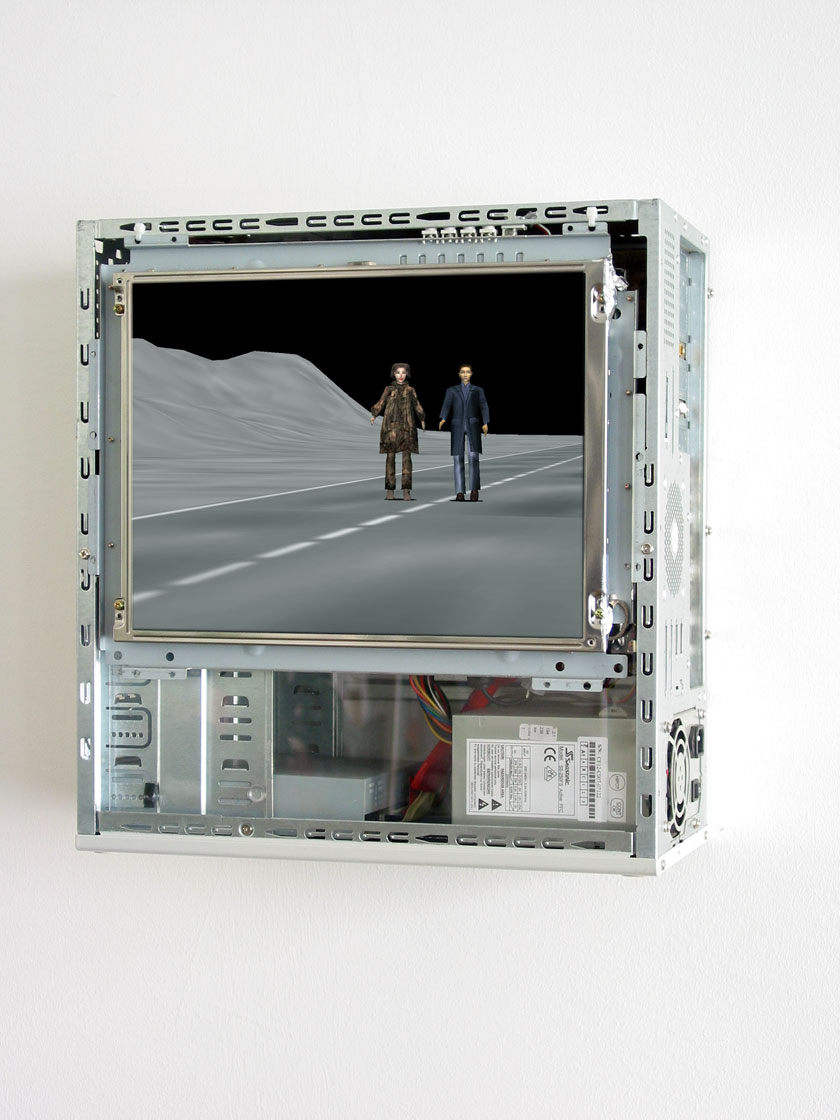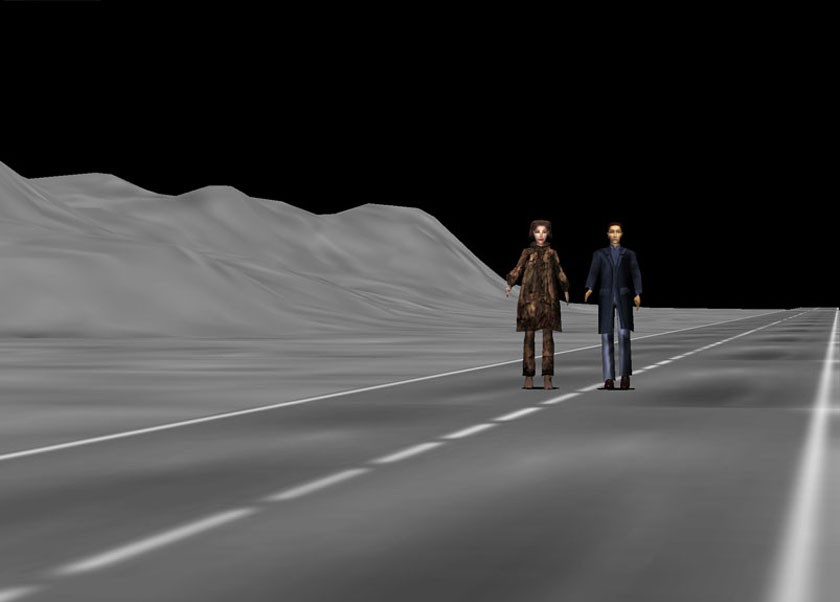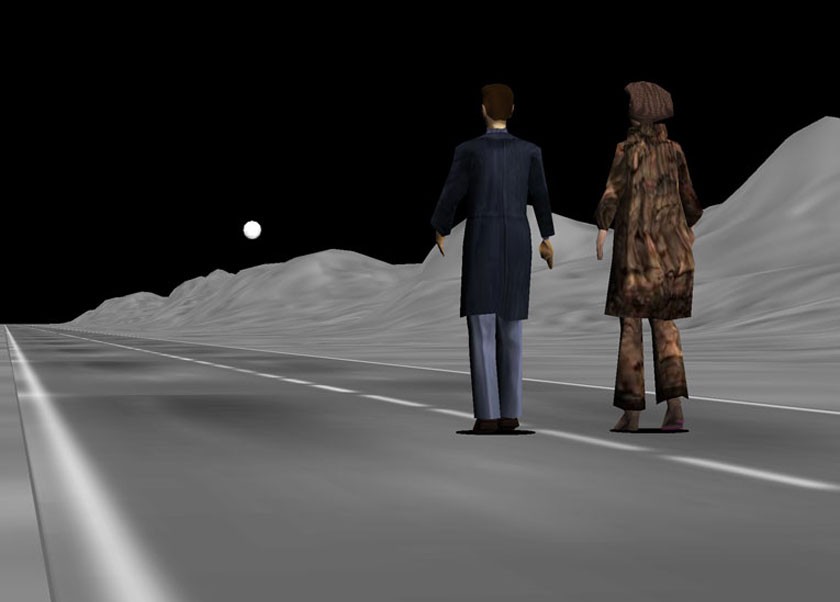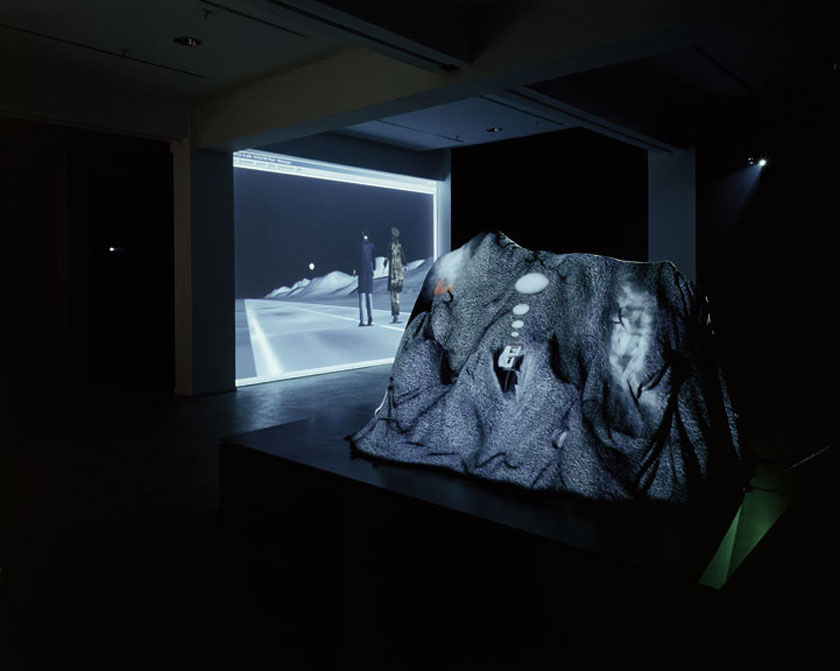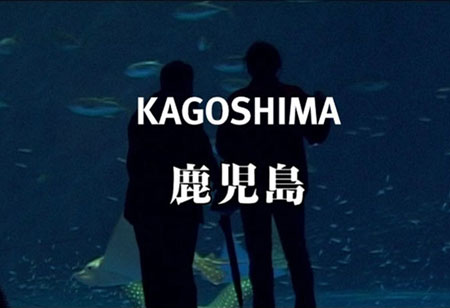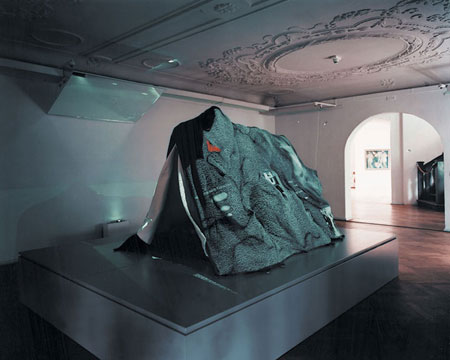excerpt from the dialogue […]
B: What’s interesting are the graduations — starting with communism, which demands the individual’s unconditional subordination to the principle, to the unadulterated doctrine. And ending up with states-within-a-state that are tolerated – Scientology, or things like that.
A: Or the Vatican.
B: Maharishi was cunning enough not to place in question the religions and patterns of thought, and instead extended them by an important aspect that was missing up to then. He said, you can stay a Christian, stay a Moslem, and still meditate transcendentally.
A: Perhaps a kind of assimilation really does take place behind it all. People still think they’re the same, but mumble fundamentalist Hindu mantras all day without knowing what they mean. And if those things work like they’re supposed to, then the entire nervous system, the entire physiology, changes – everything changes. ”Welcome, you have been assimilated into the collective”.
It’s almost like that Borg story – you get immersed in meditation and turn into one, just like Seven of Nine before Captain Janeway freed her from the shelter of the Borg Collective…
B: That’s an interesting figure for Star Trek because she knows both sides. As an infant, she grew up among humans, settlers of some sort, and then got kidnapped as a girl by the Borg and became assimilated. The Borg no longer procreate genetically. They’ve realized it’s much more rational to assimilate the completed entities of other cultures.
A: Hmmm…
B: Every member of the community knows what the others are doing. There are clear rules. Seven of Nine, who’s really a kind of hermaphrodite when it comes down to it, gradually remembers her original socialization and her upbringing in accordance with western values. A conflict breaks out between the two concepts. While she begins to see the advantages of individualism again, she’s unwilling to abandon communism, the total community that views any problem in relation to the organism of the whole.
A: It’s all a lot more practical in the Borg universe anyway. There’s none of that bothersome individualism, no code of honour. But no revenge either, nothing wicked, in fact. There’s only the common will to survive, and that is strong and reasonable.
(pause)
In the last episode, the one you missed, she built a new interface in order to assimilate the entire data of the Voyager. And while she was taking it all in, she discovered some strange correlations, odd coincidences – Startime 11 .18. 23., Captain Janeway does this and that. Startime 23 4 87, Captain Janeway decides this and that. The concentration of facts that seem harmless on their own makes her begin to suspect there’s a conspiracy going on. So she notifies the other crew members. At first they’re sceptical, because for them Janeway is a flawless and noble personality. Then they start to wonder…
B: The interesting thing is that Seven of Nine is driven by logic. And this logic is derived from her existence as a being that has always lived in a community based on consensus. There’s a higher cause, let’s call it preservation of one’s own species, and from that it’s possible to derive very basic rules. After all, her logic is almost a machine’s logic. Not the superior variety of a clever politician or philosopher, like it might be with the Vulcans. The Vulcans live in a patriarchal system in which knowledge is passed on, handed down from father to son, strictly ritualized, a kind of High Priesthood.
(Pause)
Not that Star Trek’s impartial, of course. It’s so American – the superiority of the individual that wants to reach balanced judgements, on the one hand, but in the end has to follow his intuition…
A: Hmmm…
B: …and it wins every time. Naturally, the Vulcans have the superior powers of logic, and the Borg possibly possess greater social skills. All the same, it’s individual decision that wins every time. The viewers are being taught to tell themselves: trust yourself, not the others.
A: Obey your emotions!
B: Obey your emotions! And follow your need for power. Assert yourself, be noble but, when it comes to the crunch, have the ability to be a bastard.
A: But only when you’re forced to take drastic action, when it’s a question of survival. That’s the only permissible reason for the Voyager crew to strike back. Or if it’s a matter of defending those weaker than themselves…
B: Oh yes, you got it.
A: Obey your emotions and be yourself. As if goodness were fundamentally part of the human make-up. If you don’t mess about with human nature, then it’s good. Even the baddies are only bad because they’ve gone through bad things.
B: Yep, it certainly sets new standards in that respect. And Seven of Nine has been removed from the forces of evil, from communism, from a ruthless system that has lofty aspirations but in the end enslaves mankind and makes people ants in an ant state. Although scientists, it must be said, are fascinated by communities of ants and termites, puzzled as to what makes them function…
A: Like in that film, what was it called? Where the termites do something to the researchers…
[…]L’après-midi d’un avatar
A night-time landscape. Two human avatars are strolling down a road. They talk about various communities, especially ones with non-human intelligence. They talk about their love for parrots and computers, about attitudes taken to art from former East Germany, about an Indian yogi and his field research, the social skills of the Borg Collective, and the superior logic of the Vulcans. The conversation ends where it begins.
2001 Computer animation
Dialogue between two synthetic charakters
deutsch/english, 28:00 min, Loop
